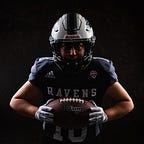At the halfway marker of Deaf Awareness Month, as a Deaf woman of color, I find myself ambivalent about this symbolic gesture of equality. Every day, I am confronted with the inaccessibility that exists in society and how, in general, society perceives the Deaf population. Certainly, today there is more awareness of the Deaf community but, unfortunately, it is primarily due to our unenviable status as a de rigueur population to exploit in Hollywood.
The recently released (2021) film — CODA — is gaining in popularity and accolades, even winning a coveted prize at the Sundance Film Festival. CODA is a coming-of-age story with a protagonist, Ruby, who is a “Child of Deaf Adults” (CODA). The film centers on Ruby’s parents’ Deaf whiteness, with the Deaf actors perpetuating dangerous stereotypes that misrepresent the reality for most of the Deaf community — especially the non-white Deaf community. By portraying the Deaf individuals as unidimensional disabled characters who need to be “saved” by the hearing family member, the Deaf actors sent a powerful and unwanted message. When given the opportunity to share the strength of those who are Deaf and to erase harmful stereotypes, they instead lean into the perception of weakness in the Deaf community. Their reckless portrayal and the lack of racial diversity contributes to a culture of hearing privilege and able-bodied privilege in the form of a significant paycheck and public recognition. This film and so many that came before it are just barely scratching the surface of the barrier that exist for Deaf people in society.
Much like the disabled community — which makes up 25% of the US population — the Deaf community has systemic issues that often are exacerbated and embroiled in racism and ableism. Deaf invisibility is a cousin of white privilege and — when the two marry — the negative outcomes are amplified exponentially. White Deaf people who have “speaking privileges” will continue to oppress their fellow Deaf community members in all spectra of life — social, cultural, financial, educational, corporate — to maintain their Deaf white superiority. In contrast, non-white Deaf individuals face multiple hurdles to overcome adversity.
This is not unique to our Deaf community and certainly is prevalent in the wider disabled community. I have personally observed disabled people exhibit ableist and white privileges granted to them regardless of their ethnic identity because they speak audibly. This leads to the silencing of the Deaf perspective as the broader non-Deaf disability community prefers to center themselves as the true representee of the community at the price of exclusion for the Deaf.
That rankles me to no end. Only 17.9% of the disabled community as a whole can be fully employed and earn a living wage. For the Deaf community, employment numbers and opportunities are minuscule. Historically, corporations have shown to be more likely to hire people with non-hearing-related disabilities over Deaf candidates even when the Deaf candidate has a superior CV and the background needed for success in the position. But why? In a sense, Deaf individuals do cost companies more money. Under the Americans with Disabilities Act Section 508, companies are only required to meet minimum standards for accessibility. For most disabled individuals, this involves one-time expenses related to retrofitting the workspace to be ADA-compliant or to accommodate individual limitations. In contrast, members of the Deaf community have unique access needs that require an on-going commitment and monetary investment by the employer to comply with federal workplace laws.
Over the past few months, I have applied for countless jobs — all of them aligned with my background and qualifications. However, by indicating on my CV that I am Deaf, I am likely ensuring I will be DQ’d. The hiring process by its very nature is ableist. Consider the fact that the first round of interviews is typically conducted via telephone and without video enablement. If asked, I can readily provide a preferred ASL interpreter that I have a solid working relationship with or work within the constraints I have lived with my entire life. Despite that fact, there is no guarantee I would have access for an interview. This is the reality I live with as a Deaf person. My qualifications, academic and professional background and the ongoing DEI efforts in the corporate workspace have done little to increase access for Deaf job seekers. The fact remains — fewer than 50% of Deaf women are employed. And for Deaf women of color? The gap expands dramatically. In general, members of the white community benefit from opportunities not given to the BIPOC community. Compound that with being Deaf, the result is very few employment opportunities and, when those jobs are presented, they typically come with low wages and little to no upward mobility nor growth potential. It is, in fact, legal in many states for employers to pay less than minimum wage to disabled people, regardless of qualifications.
I am strong. I am smart. I am educated, a team player, an athlete, a coach, a mother, a problem solver, and a creative changemaker with a tremendous work ethic. I will work harder, longer, and more diligently than my non-Deaf counterparts because the only world I have ever known is one where I need to do more than perform adequately, I must be exceptional. But none of that matters. I am a Deaf women of color and, somehow, even in 2021, that is enough to ensure that I am nearly unemployable.
Wake up. We are here and we belong in your workplace. Because, really, it just isn’t that difficult to accommodate our differences and, I promise, you will receive the best return on your investment simply for looking beyond audible speech and into the skills and unique perspectives we can bring to your corporation.
